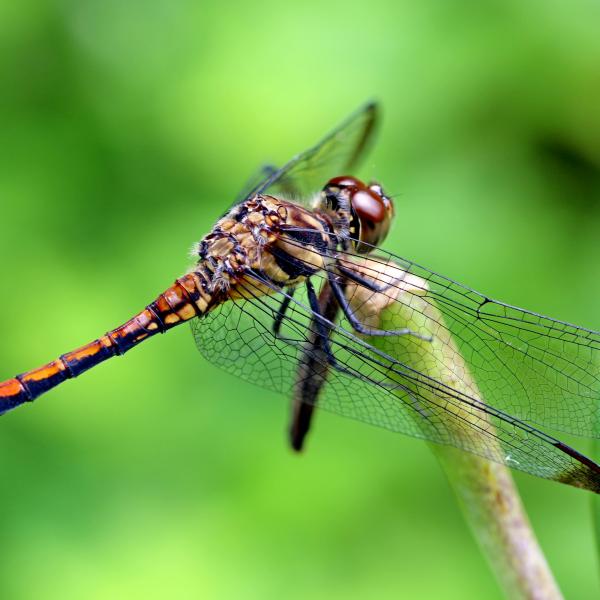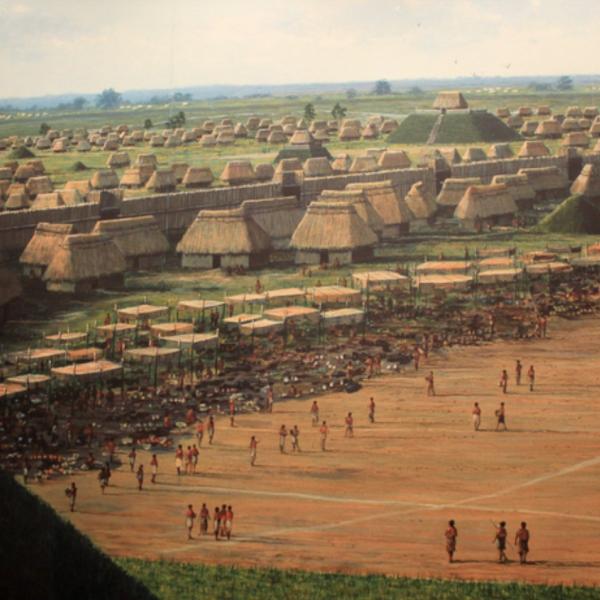The WUSTL ENDURE program, which hosts the annual symposium, partners with groups across WashU and local institutions to attract top talent, provide training and mentorship opportunities, and improve the diversity of the neuroscience field.
“What would happen if you lost your heart?” Ephraim Oyetunji, a rising junior studying neuroscience in the Department of Biology and African and African American studies, both in Arts & Sciences, is not speaking romantically. “Every other piece of your body can be lost or transplanted, including your heart, but if you lose your brain, you lose yourself.”
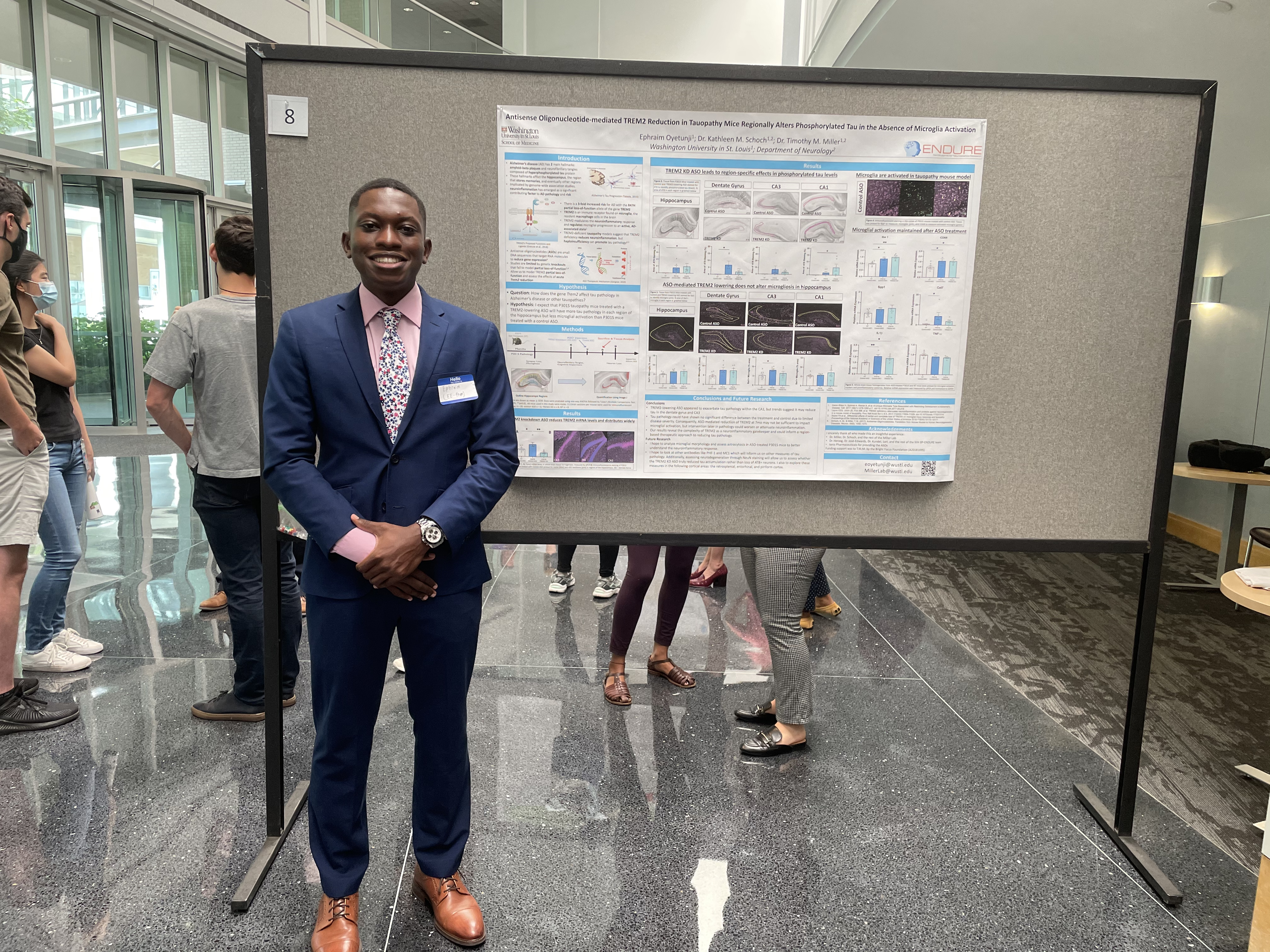
Oyetunji was one of 16 students to present at a symposium held August 5, a regular feature of Washington University’s ENDURE program (WUSTL ENDURE). At the annual symposium, Oyetunji and other current students delivered their results after a summer embedded with labs on both the Danforth and medical campuses. Oyetunji presented his work on how neurodegenerative conditions, such as Alzheimer’s disease and ALS, cause the brain to deteriorate. Other presentations revealed findings relating to complex neuroscience topics such as pediatric anxiety and circadian rhythms. Throughout the symposium, attendees had the opportunity to engage with the young scholars and hear their insights.
Since its establishment in 2015, WUSTL ENDURE has prepared undergraduates from diverse backgrounds for advanced studies in neuroscience. The program combines hands-on research training with abundant professional development and a robust support system to help students succeed in PhD or MD/PhD programs in neuroscience-related fields and beyond. With support from the NIH’s Blueprint for Neuroscience Research initiative, WUSTL ENDURE aims to foster and sustain interest and opportunities in neuroscience research for individuals who are typically underrepresented in the field, including those from racial and ethnic minorities, students with disabilities, individuals from low-income households, and first-generation college students.
With the support of the program and its people, WUSTL ENDURE’s students and alumni are quickly establishing themselves as the future of the field. Nearly 75% of the program’s undergraduates have enrolled or intend to enroll in graduate programs in neuroscience, and alumni often earn places at top graduate institutions. Though the program recruits nationally, local partners such as Harris-Stowe State University, Saint Louis University, and the University of Missouri-St. Louis help identify and attract local talent. Around 50% of enrolled students are from the St. Louis region or attend college in the area.
Training beyond the lab bench
Under the leadership of co-directors Diana Silva José-Edwards, coordinator of STEM diversity initiatives, and Erik Herzog, the Viktor Hamburger Distinguished Professor in the Department of Biology, both in Arts & Sciences, the WUSTL ENDURE program has broadened from the lab bench to more holistic approaches to student training and support.
“From the beginning, we knew students would have wonderful research experiences because we have so many amazing faculty and labs at WashU,” José-Edwards said. “What we had to figure out as the program evolved was how else we were going to train the students – what else did they need to know to be ready for that transition to graduate school? We added additional academic and professional development workshops, so students could enrich their experience and reinforce the research they were doing in the lab.”
In addition to presentation opportunities like the annual summer symposium, workshop topics include practical sessions on how to write about research and complete graduate school applications, processes that can seem mystifying to the uninitiated. Another important but often overlooked aspect of professional development? Networking. José-Edwards and Herzog point to a robust social network as one of the program’s critical achievements.
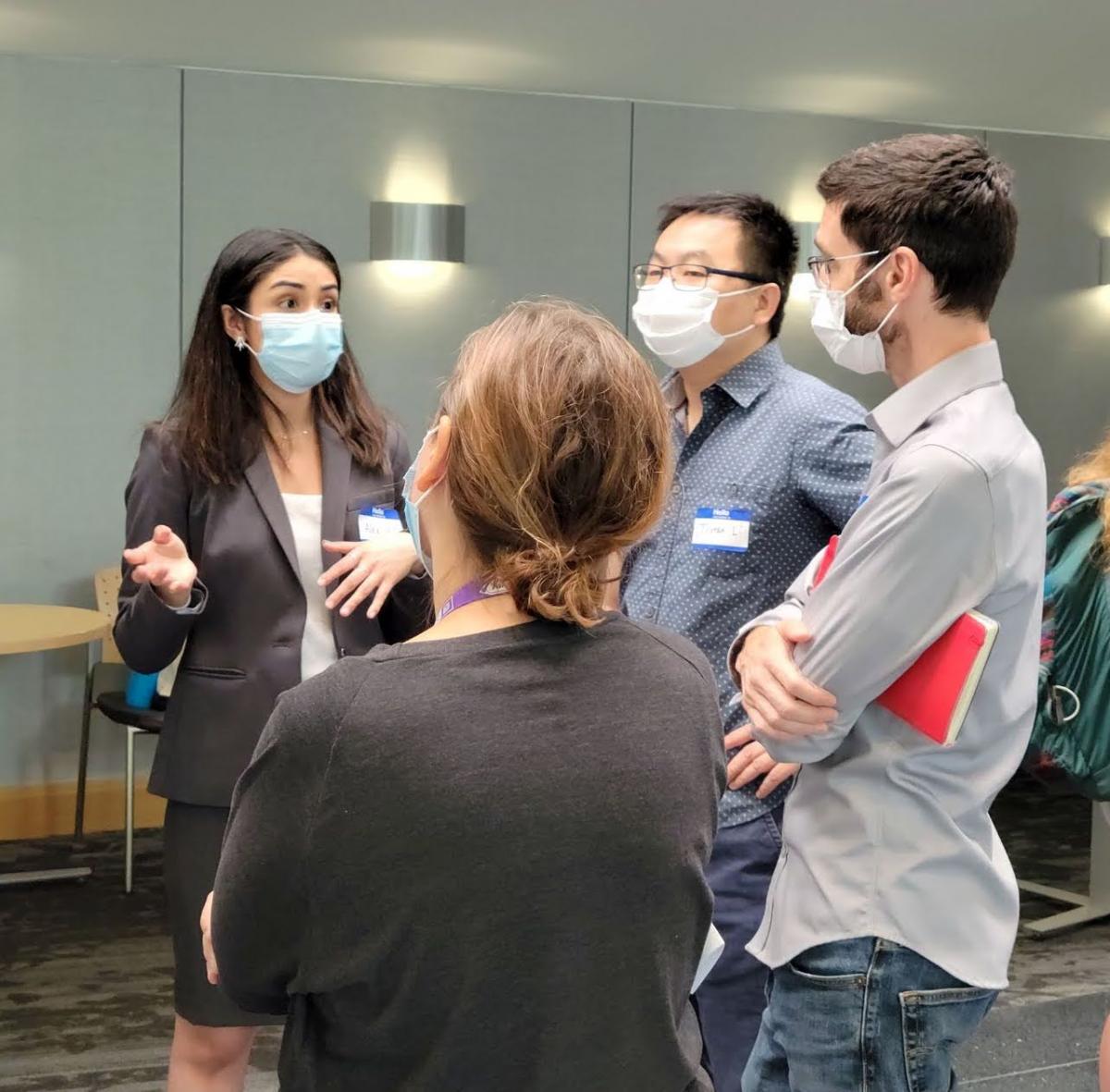
“The NIH was interested in seeing programs report on what was working, and so we developed the hypothesis that one of the special things about our program is the network of interactions that our students grow as part of this two-year training program,” Herzog said. “With the help of Mark McDaniel and Mike Cahill at CIRCLE, WashU’s Center for Integrative Research on Cognition, Learning, and Education, we’re now working to evaluate the strength and number of connections that our students form while they’re part of our community.”
Each year’s cohort typically includes eight students, resulting in a carrying capacity of about 16 students active in the two-year program. Program leaders carefully select cohorts in order to build a supportive unit. Those students are in turn matched with near-peer mentors – graduate students in WashU’s Division of Biology and Biomedical Sciences (DBBS) or postdoctoral fellows within the university’s neuroscience community – who can help students navigate the next steps in their careers and training and also introduce students to other members of the community. All WashU faculty mentors working with ENDURE are also members of DBBS, firmly linking the program with the wealth of neuroscience research opportunities available in both Arts & Sciences and the School of Medicine.
For Oyetunji, these mentorship and networking opportunities have made up a crucial part of his WUSTL ENDURE experience. “When I was deciding what lab to join, Dr. Herzog advised me on my options, taking into consideration my specific research interests, learning style, and even which students would be the best fit for mentors for me,” Oyetunji said. “That kind of networking opens the door for you to shine and encourages you to put yourself in spaces where you can excel.”
“My mentor challenged me to be the best scientist I can be.”
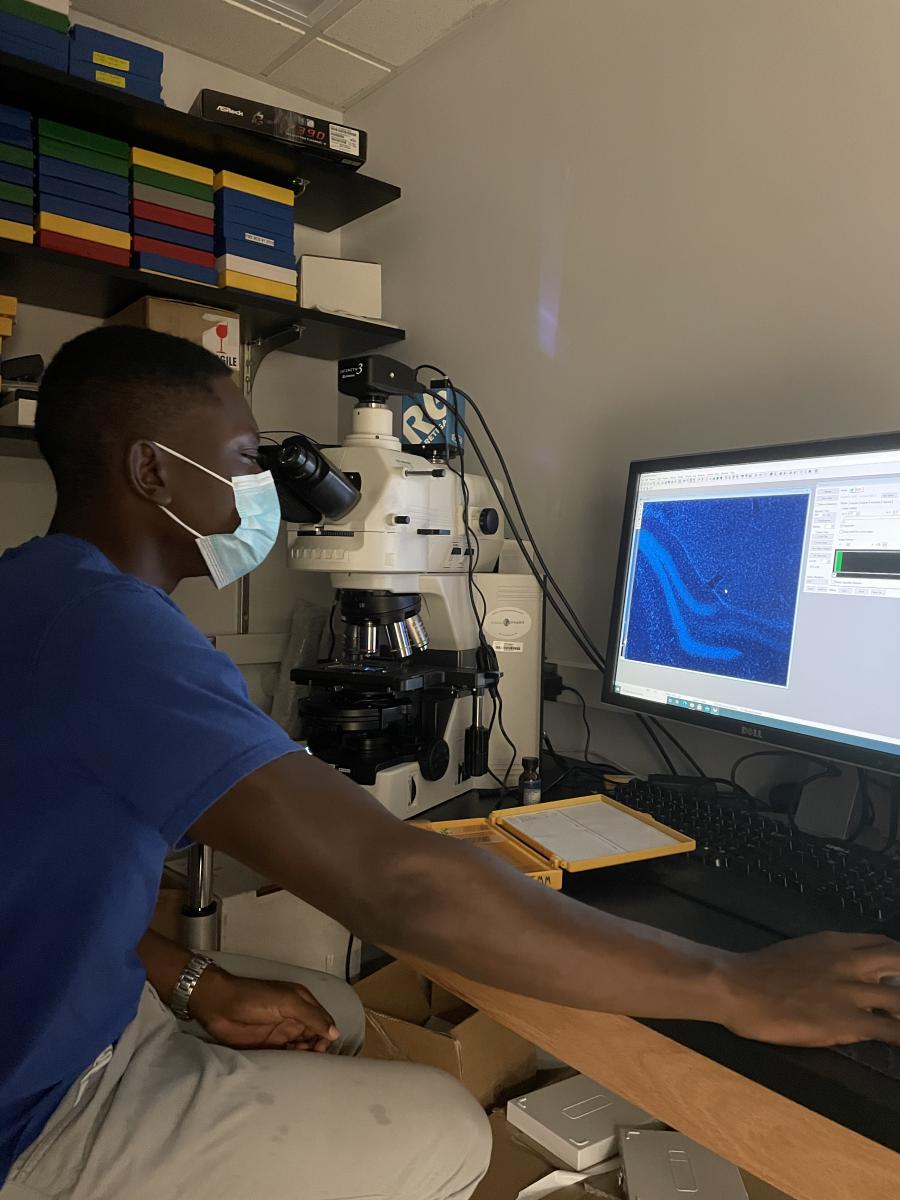
Reflecting back on his overall experience this summer with ENDURE, Oyetunji concludes that the people truly make the program. He credits co-directors Herzog and José-Edwards, as well as his bench mentor, Kathleen Schoch, and his lab’s principal investigator, Timothy Miller, the David Clayson Professor of Neurology at the School of Medicine, with offering essential advice on everything from navigating graduate school to figuring out how to balance research with other priorities like outreach and mentoring. As one of three undergraduates in Miller’s lab this summer, the only one from the ENDURE program, Oyetunji felt supported and encouraged by the graduate students and postdocs working alongside him.
“You’re here to learn and grow, but also to have fun. ENDURE is special in that, as opposed to trying to navigate the research world on your own, you have mentors, you have directors, you have people doing the same things you are in neighboring labs and in your cohort,” Oyetunji said. “At the end of the day, these people are all there for you, holding you accountable, helping you through the inevitable challenges, and also going with you to unwind over a game of ping pong or a pizza. My love and my passion for research has only grown within the community, much more so than it would have independently. It’s very much a community with genuine collaboration, interest in getting to know you, and investment in helping you grow.”
Under José-Edwards’ and Herzog’s leadership, WUSTL ENDURE’s mission has solidified, and its success is apparent. Even so, José-Edwards notes that these efforts are only one small step in the necessary work of bringing greater diversity, equity, and inclusion to scientific fields. “We need to work more toward an equity framework to promote equitable access and transform institutional structures and cultures. Programs like ENDURE are necessary, but not sufficient,” she said.
“This program exists to bring in new voices and new perspectives from students who might not be traditionally likely to attend graduate school or pursue neuroscience,” Herzog added. “We’re also pushing our faculty and colleagues to appreciate how much they can be doing to make this a place where people from different backgrounds can succeed. We’ve invested in mentorship and communication training, and we’re very proud of how many program alumni are now doing well as graduate students at WashU and beyond.”
